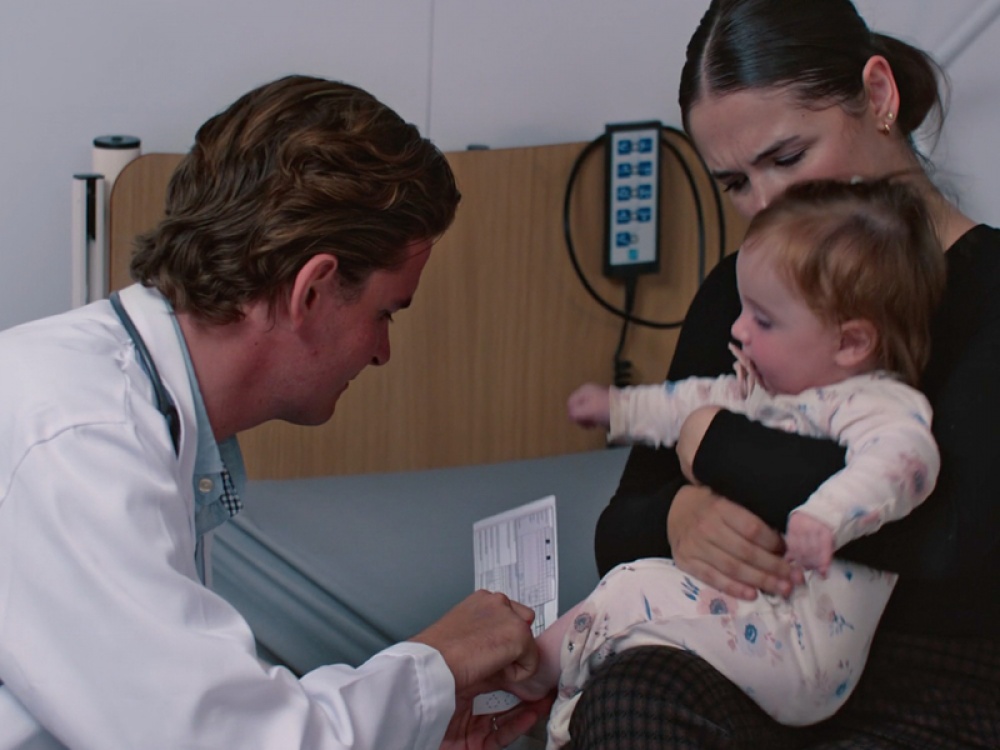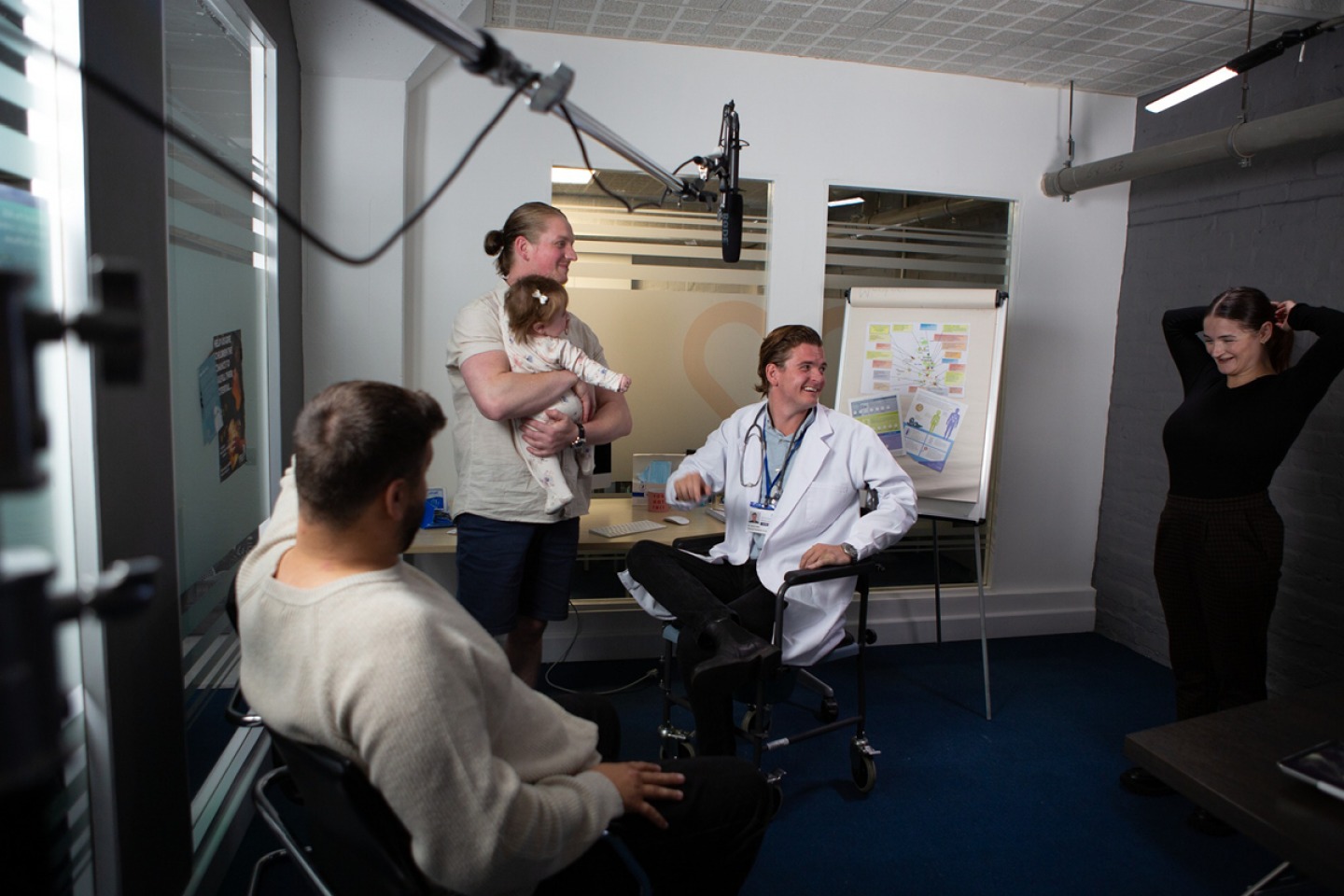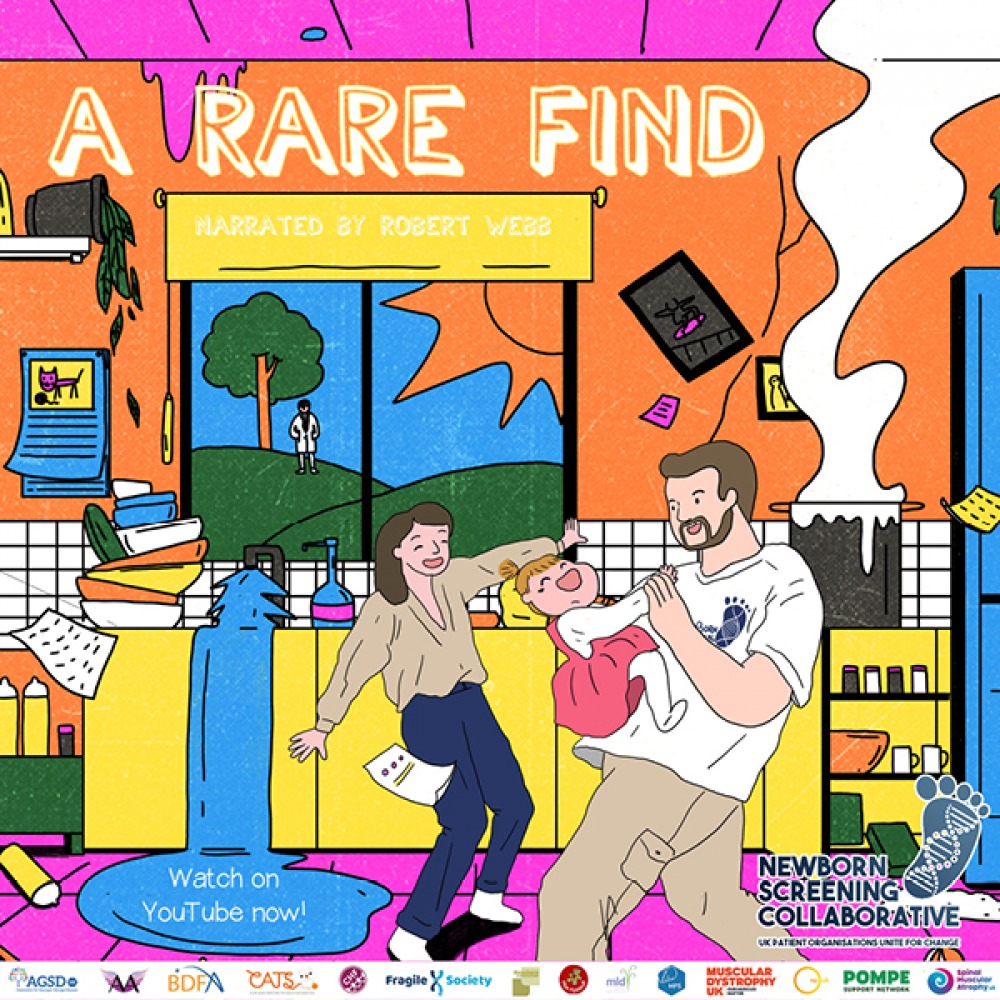Raising Awareness for Newborn Screening … and Some Giggles Too

A North East team representing the Newborn Screening Collaborative has collaborated with Robert Webb on a new comedy short

Decisions surrounding which diseases should be tested for are taken by the UK NSC (National Screening Committee). There have been some recent successes; in February 2023, the NSC recommended that the metabolic disorder Tyrosinaemia type 1 be added to the conditions babies are screened for, this would make the total diseases screened for 10. However, even with this breakthrough on the horizon, the Newborn Screening Collaborative think that the UK needs to catch up with other high-income countries like the US, where babies in some states are screened for 59 diseases.
Currently the UK screens for fewer diseases than other countries because they have specific criteria that must be met before a disease will be added the list. This includes factors like the accuracy of available testing, the availability of treatment on the NHS, and whether early detection improves outcomes for sufferers. These are all seemingly sensible requirements, but the inherent rarity of the diseases in question, and therefore available data, can make them very difficult to meet. And the more time it takes, the more families miss out on a potentially life-saving, or life-enhancing, diagnosis.
Read More: Meet the Parents Behind The Tiny Company

I spoke to John Lee Taggart, who is head of communications for one of the charities included in the collaborative, Niemann-Pick UK. He told me that the NSC tends to focus on screening for diseases for which there is a cure, excluding those like Niemann-Pick where only palliative treatments are available. He says that the ‘emotional toll’ of screening and the possibility of false positives are other reasons that get cited. He understands this, but doesn’t believe that it is enough to outweigh the benefit of a potential diagnosis ‘At the end of the day you’d rather know. That’s the other side.’
It can be easy to want to avoid dwelling on heavy topics like rare diseases, but the Newborn Screening Collaborative know the importance of being informed, especially for new parents. That’s why they decided to make their new comedy short, A Rare Find, as a lighter way of introducing the topic. Peep Show’s Robert Webb narrates as we follow two new parents, played by Chantelle Taggart and Jack Robertson (whom you may know from Metroland Comedy or his BBC short, Where it Ends) as they seek a diagnosis for their baby girl, who they are concerned may be ill.
John wrote and directed the film himself in collaboration with Gateshead-based production company, Media Borne, and says that is undeniably a Northern effort. ’My wife [Chantelle Taggart] is from Shields, I’m from Sunderland and Jack’s obviously from Whitley. Robert Webb isn’t Northern, but honorary.’ Moreover, the little girl at the centre of the plot is his daughter, Cora. As screening usually take place at five days old, they wanted to find a way of making her advanced age part of the story. Consequently, it was decided that the parents at the centre of the film initially opted out of the heel-prick test, but change their minds over the course of the film.
It may not seem like the most obvious material for comedy, but John assures me that ‘it’s not intended to scare families.’ It’s really just to make them aware that you get this blood spot test when you’re a few days old and that, you know, if we screen for more, that would obviously be better.’ He says that there were some doubts about the idea at first. ‘It’s such a difficult one to make it clear that it’s not joking about it, it’s just being light hearted about the subject, but once [Robert Webb] was on board, they were like okay. Let’s go for it.’
Read More: We Go Behind the Scenes at the World's Biggest Play Structure with the Duchess of Northumberland
A Rare Find is just the first step in their campaign, and will be followed up with content that addresses the aims of the collaborative in more depth, including pushing for policy change. For now, John tells me that the aim of the film is just to make the public aware that the issue exists and, rare as these diseases may be, they do have an impact on real families just like theirs.







